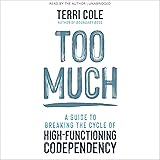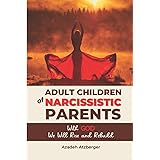In the realm of our favorite sitcoms, characters often grapple with relatable human challenges, albeit through a comedic lens. The hilarious clip above, featuring Leonard’s futile attempt to intervene in Penny’s burgeoning online gaming habit, beautifully highlights a scenario that, while exaggerated for laughs, echoes real-world concerns about excessive gaming and its impact on daily life. Sheldon’s exasperation, Penny’s complete absorption, and Leonard’s awkward approach serve as a perfect jumping-off point for a more serious discussion.
Indeed, like Penny getting lost in “Fritz, I need you on my flank,” many individuals find themselves deeply immersed in digital worlds. This isn’t inherently negative; video games offer entertainment, social connection, and even cognitive benefits. However, when a hobby begins to overshadow responsibilities, relationships, and well-being, it can transition into a problematic pattern. Understanding this distinction is crucial for both individuals and their concerned loved ones.
Recognizing the Signs of Excessive Online Gaming
Just as Penny forgot it was Thursday, mistaking it for a Monday off, one of the primary indicators of an excessive gaming habit is a shift in priorities. When the allure of the virtual world consistently trumps real-world obligations, it warrants closer examination. This can manifest in several ways, often subtly at first, gradually intensifying over time.
Consider, for instance, the time commitment. A person might spend an inordinate number of hours gaming daily, often sacrificing sleep, work, or study time. Furthermore, if gaming becomes the dominant leisure activity, pushing aside other hobbies or social engagements, it’s a significant red flag. Analogously, imagine a meticulous gardener who, instead of tending their diverse array of plants, dedicates all their time and energy to nurturing just one, letting the rest wither.
Impact on Daily Life and Relationships
Sheldon’s complaints about Penny interfering with his sleep and work are not merely sitcom fodder; they reflect the genuine strain gaming addiction can place on interpersonal relationships and personal productivity. Communication often suffers as individuals become less present, offering one-word answers or dismissing conversations, much like Penny’s curt “Busy!” and “Jabber, jabber, jabber.” Relationships, whether platonic or romantic, thrive on shared attention and mutual engagement. Consequently, a partner or friend absorbed in a game may unintentionally create distance.
Moreover, the neglect of responsibilities is a common side effect. Work performance can decline, academic achievements may suffer, and even basic self-care routines can be overlooked. The “Cheetos in your hair” comment, while funny, humorously underlines a potential lack of attention to personal hygiene or environment. Ultimately, the virtual world, designed for escape and enjoyment, becomes a cage if it prevents meaningful engagement with the real world.
Approaching the Conversation: Beyond Leonard’s Awkward Intervention
Leonard’s hesitant “sometimes people, good people… find themselves… kind of addicted” approach, while well-intentioned, fell flat. This highlights a common challenge: how do you address concerns about someone’s gaming habits without alienating them? Effective communication is paramount, requiring empathy, clear expression, and a focus on observable behaviors rather than labels.
Rather than making accusations, which can lead to defensiveness, it’s more productive to express specific concerns using “I” statements. For example, instead of “You’re addicted to games,” try “I’ve noticed you’ve been gaming more lately, and I’m concerned because you seem tired at work.” This focuses on the impact on you and your observations, fostering a less confrontational environment. Furthermore, choosing the right time and place for such a conversation is critical; attempting to talk during an intense gaming session, as Leonard did, is almost guaranteed to fail.
Strategies for Setting Boundaries and Encouraging Balance
Once a conversation has been initiated, the next step involves collaboratively establishing healthy boundaries. This is a shared responsibility. For the individual struggling with excessive gaming, it might involve setting concrete time limits for gaming, scheduling other activities, or utilizing in-game timers or app blockers. For concerned loved ones, it means communicating expectations clearly and consistently, while also offering support for alternative activities.
A helpful analogy might be a balanced diet. Just as a healthy diet includes a variety of foods, a healthy lifestyle includes a variety of activities—socializing, physical exercise, creative pursuits, and relaxation—of which gaming can be one component. The goal is not necessarily to eliminate gaming, but to integrate it into a balanced life. Furthermore, encouraging engagement in shared activities unrelated to gaming can strengthen bonds and provide alternative sources of enjoyment and fulfillment.
Self-Assessment: Understanding Your Own Gaming Footprint
For individuals who suspect their own online gaming habits might be veering into problematic territory, self-assessment is the first vital step. This involves honest reflection on how gaming fits into their overall life. Are you frequently thinking about gaming when you should be focusing on other tasks? Do you feel irritable or restless when you can’t game? Have you tried to cut back on gaming without success?
Consider keeping a log of your gaming time for a week or two. This provides concrete data rather than relying on vague impressions. Reflect on the reasons you game: is it primarily for enjoyment, or is it increasingly a way to escape from stress, anxiety, or other difficulties in life? Acknowledging the underlying motivations for gaming can be incredibly insightful. Subsequently, if these reflections raise concerns, seeking professional guidance from a therapist or counselor specializing in behavioral addictions can provide structured support and strategies for change.
The Road to Healthy Digital Engagement
Ultimately, navigating the world of online gaming responsibly is a journey toward healthy digital engagement. It requires self-awareness, open communication, and a willingness to adapt one’s habits. The comedic take in *The Big Bang Theory* reminds us that these challenges, while sometimes light-hearted on screen, are very real for many people. Fostering a supportive environment, encouraging dialogue, and providing resources are essential steps in ensuring that gaming remains a source of joy and connection, rather than a cause of distress or isolation, truly enabling a balanced and fulfilling life.











